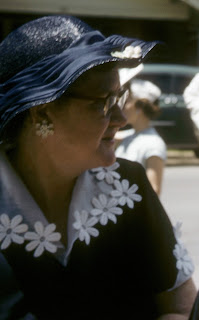the battle done;
The victory of life
is won;
The song of triumph
has begun:
Alleluia! Alleluia!"
--Latin Hymn, tr. Francis
Pott (1832-1909)
Every
Easter the memory comes back. I had a chance to see the Passion Play in
Oberammergau, Germany several years ago. The play opened with Jesus riding into
Jerusalem for the last time. The play ended with the Resurrection. For almost
six hours the audience followed the story of Jesus’ last days on earth.
I was not prepared for the Resurrection
scene. The crucifixion had been particularly graphic and disturbing. After
Jesus’ body was carefully taken down from the cross the stage went dark. Suddenly a dim light came on which
illuminated a small cluster of weeping women. They stood before huge doors that
represented the locked tomb. They knocked on the door. Nothing happened.
Frantically they tried to pry the doors open. The doors did not budge. Suddenly
an angel came on stage and without saying a word began to unroll a white aisle
cloth from the closed door down the steps toward the audience. As the women
looked on, the door creaked open and dazzling light slowly filled the stage and
finally the whole room. Through that open door Jesus came. He walked down the
steps. And from left and right laughing children came running forward, hugging
Jesus’ legs. In the background a Choir sang.
I
can’t improve on that Easter scene. It was as close to the wonder of the Resurrection
as anything I know. Who can put this special day into words? Surely not the
merchants hawking their Easter wares. Surely not the bunnies, the Easter
lilies, the corsages, or those wonderful multi-colored eggs. Surely this day is
more than the coming of spring and the end of winter.
Easter
is light, hope, new beginnings, love and laughter. Somehow our old nine to five
calendar pages are disturbed once again. The predictability of our days is
thrown off kilter. And whether it is worry about money or retirement or health
or children or just the troubled world-- most of us find ourselves pausing on
Easter morning.
People
who never darken the door of a church put on our finery and slip into some
sanctuary. This
is not the time for any preacher to chide those who only come on Easter
morning. It hardly matters if they are dragged along by some wife or child. We
all need something to shatter life’s flatness. A bad lab report. That funeral
last week. Afghanistan, endless Afghanistan. A disappointment so heavy that we wonder if we can make it. Like
those women in the play we all know something about locked doors and sealed-up
tombs.
And
Easter comes. Saying that despite the darkness which is very real and the
trouble we all carry, there is another word. There is light, so blinding it
hurts our eyes. There is wonder so strong that we may find it hard to hold back
the tears. There is joy and laughter at the heart of life despite its rawness
and its difficulty.
What
changed those petty, cowardly disciples and turned them inside out? There is no
explanation except that Easter brought with it light, hope and new life for
them and for their world. They wrote the story over and over until we have four
gospels. They founded a church, which has endured despite its all-too-human
members and preachers. That little group of first believers passed the torch
until the greatest story ever told could be our story, too. Wishful thinking?
Some say so. I choose to remember large open doors and a blinding light and at
the center Jesus come back from the dead. But what I remember most after all
these years is the laughter of all those children.























